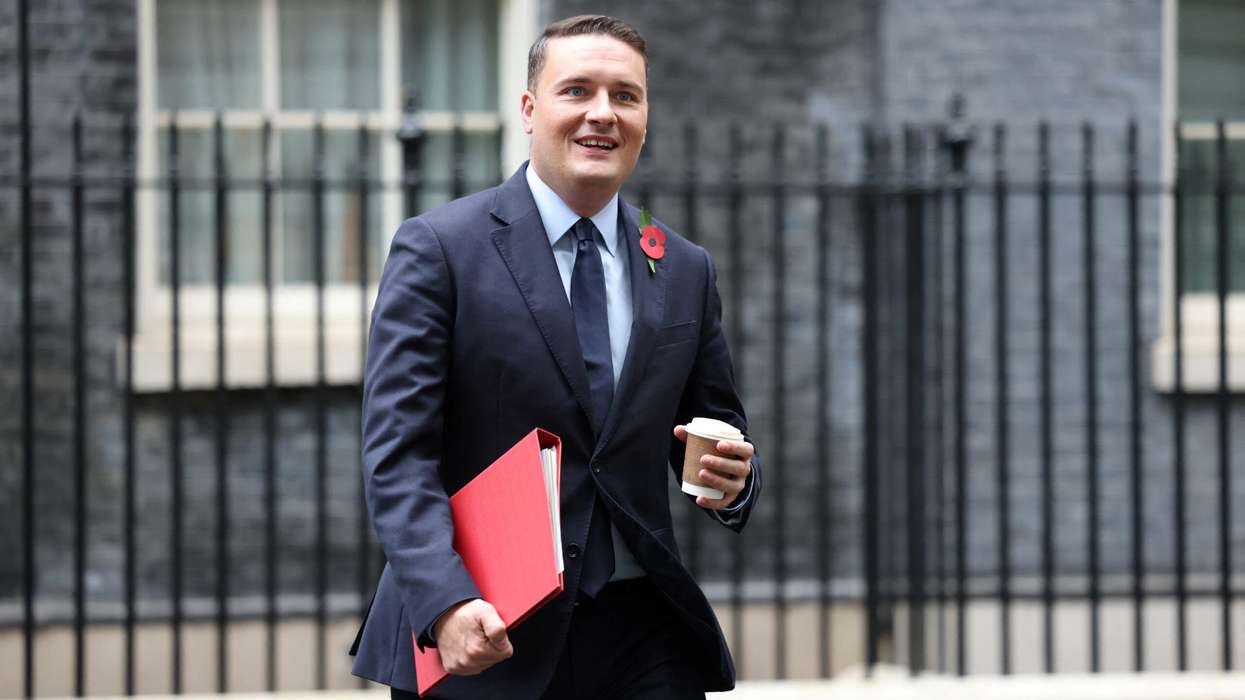THE philanthropist, Yusuf Hamied, has said he is supporting the setting up of a Fleming Institute in London – and in India – to combat Anti-Microbial Resistance (AMR), the problem that leads to “superbugs” in hospitals.
Dr Hamied, the chairman of the Indian pharma giant Cipla, is backing Lord Ara Darzi, of Imperial College London, in the fight against AMR.
He said he also has the “blessings” of Dame Sally Davies, master of Trinity College, Cambridge, recognised as one of the world’s leading AMR authorities.
According to the World Health Organisation (WHO), “AMR threatens the effective prevention and treatment of an ever-increasing range of infections caused by bacteria, parasites, viruses and fungi.
“AMR occurs when bacteria, viruses, fungi and parasites change over time and no longer respond to medicines, making infections harder to treat and increasing the risk of disease spread, severe illness and death. As a result, the medicines become ineffective and infections persist in the body, increasing the risk of spread to others.
Speaking to Eastern Eye, Hamied set out the extent of the global problem: “Everyone in the medical profession, the (UK) government and all of us are seeing the enormity of the problem caused by AMR. Sally Davies and others have announced in the past that at least 10 million people will die over the next decade due to AMR.
“I have been involved in AMR for a number of years. Originally, it was through Dame Sally Davies.”
Lord Ara DarziDame Sally, the chief medical officer for England and chief medical adviser to the UK government from March 2011 to September 2019, is the UK special envoy on AMR. She co-led a global campaign to bring the issue of AMR to the 71st UN General Assembly in New York, leading to 193 countries agreeing the landmark 2016 political declaration on AMR.
Hamied added: “Following up from this, earlier this year for the first time I met Lord Ara Darzi and we got on very well. And one of the functions that Imperial College and Lord Darzi want to take up is to set up, at the site of St Mary’s Hospital in Paddington, the Fleming Institute. It is named after Alexander Fleming, who discovered/ invented penicillin way back in 1928.”
Professor Darzi holds the Paul Hamlyn chair of surgery at Imperial College London, the Royal Marsden Hospital and the Institute of Cancer Research. He is also director of the Institute of Global Health Innovation at Imperial College. Research led by Darzi is aimed at achieving best surgical practice through innovation in surgery and enhancing patient safety and the quality of healthcare.
The WHO states: “Anti-microbials – including antibiotics, antivirals, antifungals and anti-parasitics – are medicines used to prevent and treat infections in humans, animals and plants. Micro-organisms that develop anti-microbial resistance are sometimes referred to as ‘superbugs’.
“It is estimated that bacterial AMR was directly responsible for 1.27 million global deaths in 2019 and contributed to 4.95 million deaths.
“The misuse and overuse of antimicrobials in humans, animals and plants are the main drivers in the development of drug-resistant pathogens.
Dame Sally Davies“AMR affects countries in all regions and at all income levels. Its drivers and consequences are exacerbated by poverty and inequality, and low- and middle-income countries are most affected.
“It puts many of the gains of modern medicine at risk. It makes infections harder to treat and makes other medical procedures and treatments – such as surgery, caesarean sections and cancer chemotherapy – much riskier.
“There is an inadequate research and development pipeline in the face of rising levels of resistance, and urgent need for additional measures to ensure equitable access to new and existing vaccines, diagnostics and medicines.
“In addition to death and disability, AMR has significant economic costs. The World Bank estimates that AMR could result in $1 trillion additional healthcare costs by 2050, and $1tr-$3.4tr gross domestic product losses per year by 2030.”
The problem of AMR is particularly acute in India. According to the National Library of Medicine in America, “the emergence and rapid spread of AMR pose a grave threat to public health globally, and particularly so in India. With its unique combination of a dense population, a significant disease burden, and diverse healthcare practices, India stands at a critical juncture in the global battle against AMR.
“AMR is a crisis within the Indian healthcare system as it severely hampers the effective treatment of infectious diseases, leading to higher mortality rates, longer hospital stays, and increased healthcare costs. Its rise could mark the return of the pre-antibiotic era, where common infections and minor surgeries could once again become life-threatening.”
This is an important reason why Hamied wants the Fleming Institute in London – he has visited the site by a canal in Paddington where it will be built with “the blessings” of the UK government – to have an Indian counterpart.
He said: “What we require is the Fleming Institute to develop a few things, such as newer antibiotics for the resistant strains of bacteria that have developed resistance to the current antibiotics. Also stop the misuse of antibiotics and see that the existing antibiotics that work are used effectively.
“All this activity will be done here in London at the Fleming Institute, hopefully under Lord Ara Darzi and with the blessings of Dame Sally Davies.
“My personal interest in this was that at a very early stage, in my talks with Lord Darzi, the suggestion came up that India needs a Fleming Institute as one-fourth of the world’s population is in India.
“And India is a major centre for the misuse and excessive use, particularly of anti-microbial agents, including antibiotics.
Dr Yusuf Hamied“On this basis, we will cooperate with the Fleming Institute here and set up a suitable establishment in India which can work hand in glove with the Fleming institute that is being set up in London.
“On a personal basis, I will support the Fleming Institute here in London. The Indian counterpart would be funded by Indian philanthropists.
“One cannot today predict the cost of the establishment in the UK, or the running expenses. But I know they are planning in the region of £100 million as the cost here.
“It is early days regarding the Indian counterpart. But the cost of not taking an active interest in tackling AMR worldwide is much more than the cost of trying to tackle the problem.”
He said the problem in India is not simply one of doctors overprescribing antibiotics, but also patients demanding them: “They tell the doctor, ‘I’m not feeling well, please give me an antibiotic.’ They want to get well faster. And they all think that by taking an antibiotic, you can get well faster.”




